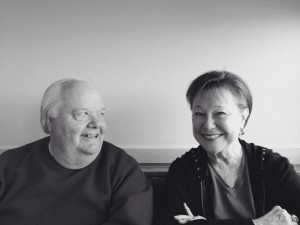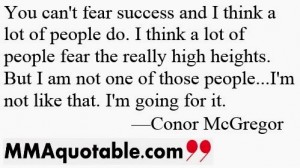Yesterday, we celebrated my dad’s birthday in the traditional Adams Family way – with awesome ribs, some wine, and funny stories. On March 4th, my dad will turn 73. Here are some quotes from the evening:
My dad talking about how he got my beautiful mother to marry him: “Perseverance and lies. You know, if you can get someone to marry you based off of lies, and then they can forgive you and love you anyway, that’s a wonderful, wonderful thing.”
My dad regarding a tough joke somebody just made: “This isn’t a family for the weak.” My brother: “It’s a family that makes you strong.”
My dad on the fact I’ve been feeling pretty fragile lately: “We’ll always be here for you, Beautifuls. Whatever you need. Okay, I’m going to bed.” (My father’s retreats are sudden, but not hard to predict. The man goes to bed around eight and gets up at four.)
I love it when my dad is in a storytelling mood, and last night he was in rare form. It was yet another occasion where I realized that I am my father. So many of his stories sounded like pages from my own life. “So, I was drinking with this guy, and then…” random adventure ensues. Other stories involved visions. For example, my dad told the story of the financial crisis brought on my the surprise arrival of my brother. (He is 15 years younger than my oldest sister.) During this time of crisis, my dad spent a lot of time drinking and laying on the couch, wondering how he was going to pay for David’s college. He then awoke in the middle of the night with an epiphany that he would be a CPA in Atlanta. He wound up in Greenville, SC, but, you know, close enough. And from the point of that vision forward, his crisis abated. I am a big fan of visions, too.
My dad also talked about the diagnosis he received in 1996 that shaped all of our lives from that point forward. At that time, a doctor told my dad he’d likely pass away in three years, but that if he was incredibly lucky, he might make it to 70. I remember praying so hard that my dad would reach 70. For years and years, that was my prayer. Often times, God dreams bigger than we do. We are extraordinarily fortunate that my dad turned out to be a medical anomaly, and there is a strange blessing in twenty years spent in the shadow of death. Perhaps predictably, it teaches you to be grateful for the days you do have. But it also teaches you, through forced contemplation, to became familiar with death itself. I think our modern discomfort with death is a great tragedy. We outsource it to hospice workers and hospitals, we fight it in ways big and small. I see it in efforts like the desire to colonize Mars. We want to sustain, live on. We obsess over our health and nutrition and try to tack on as many years as we can. To me, these things seem born of fear, the fear of a failure to survive – when of course none of us survives. The loss of a loved one through death equals profound heartbreak. But if you believe as I do, that after death the person lives on, the hard scrabble, even desperate effort to cling to this mortal coil, as Shakespeare would say, is odd and sad. Far better to really live while you’re here, have fun, and not worry so much.
In this, my father has excelled. He is, in fact, far better than I am at it, but I like to think I’ve inherited some of his joie de vivre. I’ve told many people about how my dad introduced me to comedy. My father and I share a joint lexicon of phrases culled from W.C. Fields, Laurel & Hardy, and Mel Brooks movies. “Say, is this a game of chance?” W.C. Fields: “Not the way I play it, no.” Laurel: “Don’t you think your bounding over your steps?” Hardy: “He means stepping over your bounds.” And most frequently used – Director Roger Debris in The Producers, who is dressed in drag and about to go to a costume contest: “What do you think? BE BRUTAL, BE BRUTAL! Heaven knows they well.” And Roger Debris again: “CONGRATULATIONS!” My dad also introduced me to amazing television, like Taxi. We were also big fans of Night Court. Best exchange ever – John Larroquette to a scumbag restauranteur: “And what are these ‘batter fried bits’ made of?” Scumbag: “Formerly living things.” “Formerly living things,” is the perfect answer whenever somebody asks you what’s for dinner.
Had my dad been born in another time and place, he would have made an incredible stand-up comic. I’ve seen him on stage as an emcee and roaster, and his ability to craft a joke is superb. He’s a natural. I’ve said it before and I’ll say it again – if I had my dad’s talent for comedy I’d already have a Comedy Central half hour. I mean that, too. I have my dad’s instinct for storytelling, but not his gift for punchlines.
As I said, the older I get the more I realize that I am my father. We see the world through the same eyes. It is, of course, a great blessing to be like my dad. He’s a widely beloved man. But everybody has a shadow side. We’re both stubborn people. When we are hyper focused upon a task, don’t interrupt us. Like the Hulk, you wouldn’t like us if you interrupt us. We think we know exactly the way things should go and get very bent upon bending reality to our will. Most of the time we’re peace-loving folk, given to seeing situations in shades of gray, but our sense of injustice and correlating rage can be pretty intense. We seem like we’re really easy to get along with, but secretly we can be difficult. Which makes it that much more difficult for those that find us difficult, aka, my mother. But on the plus side, we’re big on love and forgiveness and humor.
Long story short – I am blessed to have my dad for my dad. He is a great man, a great father, a truly rare creature that improves all of the lives he touches – and there are no shortage of people he has helped along their way. There is a very old African-American saying about sipping from the saucer. The idea is that if your cup runneth over, you can sip from the saucer. This saying reminds me of my father. He is an expansive man, capable of great acts of selflessness and giving, but he does not empty himself in order to fill others, because the well of his faith runs so deep. In this, I would like to be more like him.
Yesterday, watching my dad reminisce, in his beautiful home surrounded by his family who loves him, a successful businessman and living miracle, I considered how improbable his life story is. This poor boy from Alabama, kicked out of high school and who got into college having still not memorized the alphabet, found himself married to a beauty queen from Idaho, wound up back in the South, alive and well and deeply loved. Not everybody gets such a happy third act to their life story. I am incredibly thankful my father has. He’s a wonderful man, and deserves all the happiness in the world.




